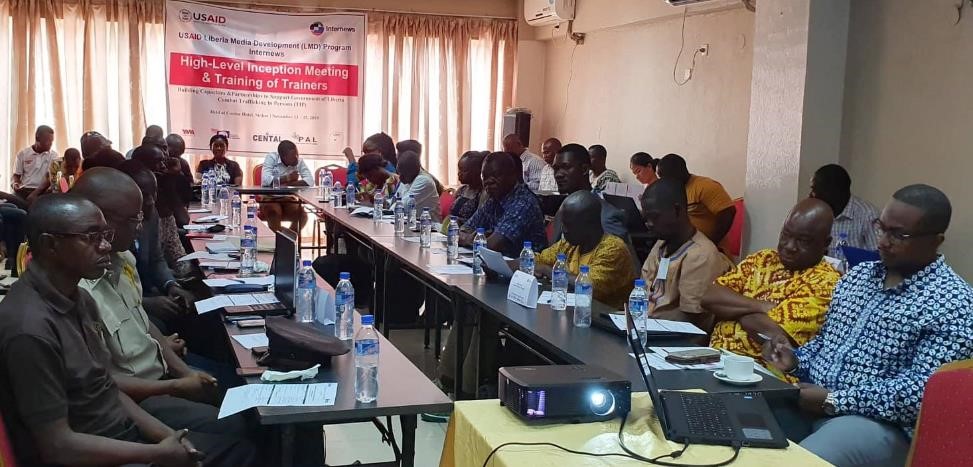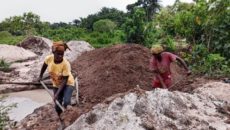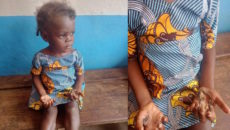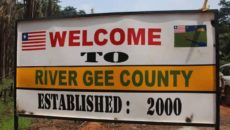MONROVIA, Montserrado – The acting gender minister, Alice Johnson Howard, has called for acts of trafficking in persons to be treated as a serious crime alongside rape and other unbailable offenses.
Howard, who is deputy minister at the Ministry of Gender, made these comments at the launch of a meeting and training-of-trainers for media development partners held on Wednesday, Nov. 13 in Monrovia. She represented Minister Williametta Saydee-Tarr, who was unavailable at the time.
The event was part of interventions by the international group Internews, an implementer of the Liberia Media Development Program recently added to the Trafficking-in-Persons National Taskforce. (Disclosure: Internews sponsors The Bush Chicken).
With funding from USAID, Internews is partnering with other civil society groups to engage citizens and stakeholders through community media forums, school press clubs, and youth engagements, as a way of increasing effective media reporting. Some of its partners include the Local Voices Liberia Media Network, Youth Media Action, Publishers Association, and the Liberia Media for Democratic Initiatives,
“When it comes to trafficking, the most vulnerable are women and children, especially in Liberia,†she said.
“Trafficking laws should be protective or rated as high as rapes – not someone going to jail for one year and then be released and then they continue in another community.â€
The U.S. State Department 2019 Trafficking-in-Persons report has maintained Liberia at a downgraded Tier 2 level on its Watch List for the third consecutive year, due to the country’s failure to fully comply with agreed-upon minimum enforcement standards regarding trafficking.
During the period under review, the report suggests that the government’s efforts have fallen far below minimum expectations regarding supporting victims during trials by providing transportation, security, and shelter; as well as awareness campaigns among public officials, and the training of law enforcement personnel in identifying and investigating trafficking.
“Complicity and corruption inhibited anti-trafficking law enforcement action, and law enforcement officials continued to lack adequate resources and understanding of trafficking to effectively investigate and prosecute trafficking crimes,†the report revealed.
In previous years, Liberia has been granted waivers from being downgraded to Tier 3 list because of the government’s efforts to devote new resources to plans that promise to meet minimum standards. However, more vigorous efforts must be made in investigating and prosecuting trafficking cases, including those cases involving complicit officials of government. This, the report suggests, is the only means of Liberia escaping a further downgrade, which could result in losing U.S. government funding.
Of equal concern was the need to amend the 2005 anti-trafficking law in order to remove the requirement of a demonstrated force, fraud, or coercion in child sex trafficking cases. Additionally, the report called for prescribed penalties for adult trafficking that are sufficiently stringent as other serious crimes.
Speaking at the occasion, USAID Liberia’s acting mission director, Rebekah Eubanks, lamented Liberia’s lack of movement from Tier 2 for the third straight year. She expressed concern that Liberia “may lose access to all U.S. government non-humanitarian development funds†if more meaningful and effective mechanisms are not instituted to combat human trafficking and protect survivors.
“USAID is committed to working with our [Liberian] partners to help make sure that doesn’t happen,†she said.
For his part, Labor Minister Moses Kollie expressed the government’s willingness to work with USAID, Internews, and other civil society partners in achieving Liberia’s anti-trafficking program. Kollie insisted, however, that despite the challenges, credible efforts continued to be made in demonstration of the government’s commitment, including the recent adoption of a second national action plan, which has been endorsed by the president and his cabinet for the next five years.
Kollie noted that resource constraints were real, stemming from setbacks suffered as a consequence of the Ebola epidemic in 2014 and the political transition of 2017.
“We have also put in place a national referral mechanism which will now guide the implementation of the national action plan to combat trafficking in person,†Kollie said.
Further government actions have included the resumption of a regular anti-trafficking-in-persons taskforce, and recent observance of the Global Day against Trafficking in Persons for the first time in a long time. Kollie also cited the government’s effort to provide protection for victims and survivors of local and international trafficking, including a group of Liberian girls who were trafficked to Lebanon and Moroccan and Sierra Leoneans girls trafficked to Liberia.
At least one case of a conviction was reported by Kollie, with several others pending in court dockets across the judiciary.
Featured photo by Samuka Konneh



